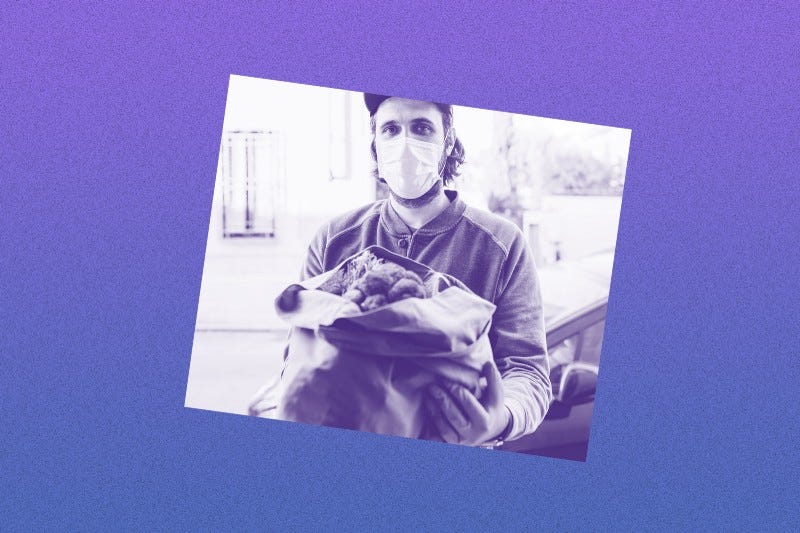Your Neighbors Are Your World
If there’s one thing the pandemic taught us, it’s that life is local. Research from the World Happiness Report backs this up.
If there’s one thing the pandemic taught us, it’s that life is local. Research from the World Happiness Report backs this up.
A few years into my marriage, my young family relocated to my childhood hometown of Atlanta. After a couple of decades moving all over the country for a series of new schools or job opportunities, I felt it was time to pick a place and put down some roots.
But after several months back home, things weren’t gelling socially quite the way I had hoped. So I called my former leadership coach, Alpesh Bhatt, and confessed that I just wasn’t finding the community I had hoped to rediscover. Al, who seemed to know me well from the first day we met, sighed and reminded me, “My friend, one does not find community. One creates community.”
He was, of course, right. I had been waiting for my new community to find me, but I had done little to reach out and assemble one of my own.
I thought of Al last week as I was speaking to John Helliwell on my podcast, Crazy Money. Helliwell is the editor of the World Happiness Report (WHR), an annual study evaluating 156 countries by how well citizens believe their lives are going. Given the downright scary issues facing us right now, I asked him, “What steps can I take to improve my happiness, assuming I can’t move away or affect the structure of society?”
“Ahh, but you can affect the structure of your society!” Helliwell corrected with gentle clarity. “Because life is local.”
Local? At first, I thought he was implying that I could better my community by doing something like running for the school board. Instead, he shared conclusions from WHR research, which showed that — given a basic level of societal stability — our individual contentment depends more on the quality and amount of interaction we have with friends, and less on macro-political or biological issues that are much further outside our scope of control.
Helliwell wasn’t trying to give me a pep talk about how I have the power to change the lives of my 7 billion co-humans. He was simply saying that if each of us reaches out to a person down the street — even with something as simple as dropping off some fruit from your backyard or a package of Clorox wipes — we can create meaningful communities that enrich the lives of all involved.
“There is an infinite variety of things you can do with — or for — your neighbors,” Helliwell told me. “It takes nothing more than a few steps and a few smiles to get the micro-connections going.”
It’s worth it to cultivate those micro-connections. The more introverted among us might need a little push to step and smile in the right direction, but the numbers, which come from annual Gallup World Poll data since 2012, clearly indicate that efforts to do so will pay off handsomely. Even a tedious activity like standing in line, which usually degrades our mood by a few percentage points, brightens our day when done with a friend. Taking a walk or a hike is a pretty reliable way to boost our disposition a little, but when strolling with someone else, according to the WHR, the benefit is four times greater.
And here’s a fascinating insight: While taking a trip with a friend improves our day by an average of 5.3%, the beneficial effects are only 3.9% when road-tripping with a partner. (I’m no statistician, but I’d guess your friend is more likely than your partner to agree on the shortest route, suitable driving music, and an agreeable cabin temperature.)
Though we can’t travel or gather in person right now, almost all of us could use more ties to our community. We need friends. We need our neighbors — especially now.
One might argue that a small percentage bump in attitude would do little to offset the upheaval of the pandemic. While Helliwell acknowledges the profound stress of unemployment and reduced incomes, he cites anecdotal evidence that reconnecting with our local communities boosts resilience in a meaningful way. He shared, “You ask people how they’re doing and they say, ‘I feel more connected to my neighborhood than I did before. And I’m meeting (neighbors) on the streets… and ditto with my friends, and we’re even cooking at home.’”
So, take heart: During a bleak time, it’s a comforting reminder that much of your happiness lies within your control.
But don’t just heart, take the initiative. Instead of spending hours pondering what the world might impose on you, take a few minutes to consider what small acts of community you might unleash.
You don’t need anyone’s permission. When you view life as local, your block becomes your world.


